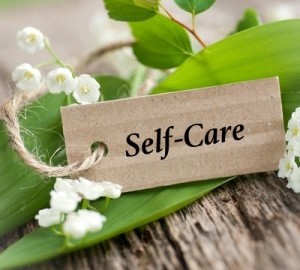
Who Are the Caregivers?
As the U.S. population is growing older, more Americans every day are finding themselves in a family caregiving role. Caregiving is becoming increasingly common, from handling medical bills to coordinating care and navigating a maze of social services. However, have you ever stopped to wonder who is caring for the caregiver?
Our health care system is dependent on unpaid caregivers. And the reality is that caregivers are often not recognized or respected for the role they play. So, who is caring for the caregiver the 34.2 million men and women who are taking care of aging parents and loved one’s?
The Impact of Caregiving
Family caregiving is a very personal and sometimes tough situation for the members involved. Talking about caregiving can be both hard and triggering for families, but with the number of caregivers going up every year, it is one of the tough topics that need to be discussed more.
While family caregiving may be a labor of love or necessity, it can exact a serious toll on the caregiver: physically, mentally, and financially. Many caregivers put their own health and financial security at risk for the sake of their loved one.
Though the role of caregiver can be thrust upon someone suddenly, it is important for caregivers to practice self-care so that they can then provide their loved ones the care they need.
8-Self-Care Caregiver Tips
- Be proactive in taking care of yourself, monitor your physical and mental health and take action when necessary by speaking to a healthcare provider.
- Move around! Aim for at least 2.5 hours of moderate-intensity activity each week. Walk, ride a bike, kayak, go to the gym and get your endorphins pumping. Regular exercise is an excellent way to boost your mood and get in shape.
- Stay up to date on any medication, and always ensure to get the necessary tests and immunizations.
- Manage stress by learning about the different stress relieving methods and selecting one(s) that works for you and your lifestyle.
- Limit alcohol by drinking in moderation. On average women should drink no more than 1 drink a day. Men on average no more than 2 drinks a day. Avoid binge drinking.
- Strive for a healthy weight by making healthy food choices and keeping your portions to fit your daily nutritional needs.
- Aim to be tobacco free, if you are a smoker, aim to reduce or cut out tobacco by slowly replacing the act of smoking for instance with patches or by chewing gum.
- Eat wisely, choose foods that release energy slowly and steady throughout the day to keep your energy levels high, such as complex carbs (wheat bread, brown rice, sweet potato).
Caregivers devote a large amount of time, energy, focus, and financial resources in providing care for their loved ones. Caring can however take a toll on the overall well-being of the caregiver, please remember that there is no shame in asking for help if you are struggling. So, if you are a hard-working caregiver, don’t be afraid to ask for help from friends, family and co-workers so that you can become your best self in your role as family caregiver.



